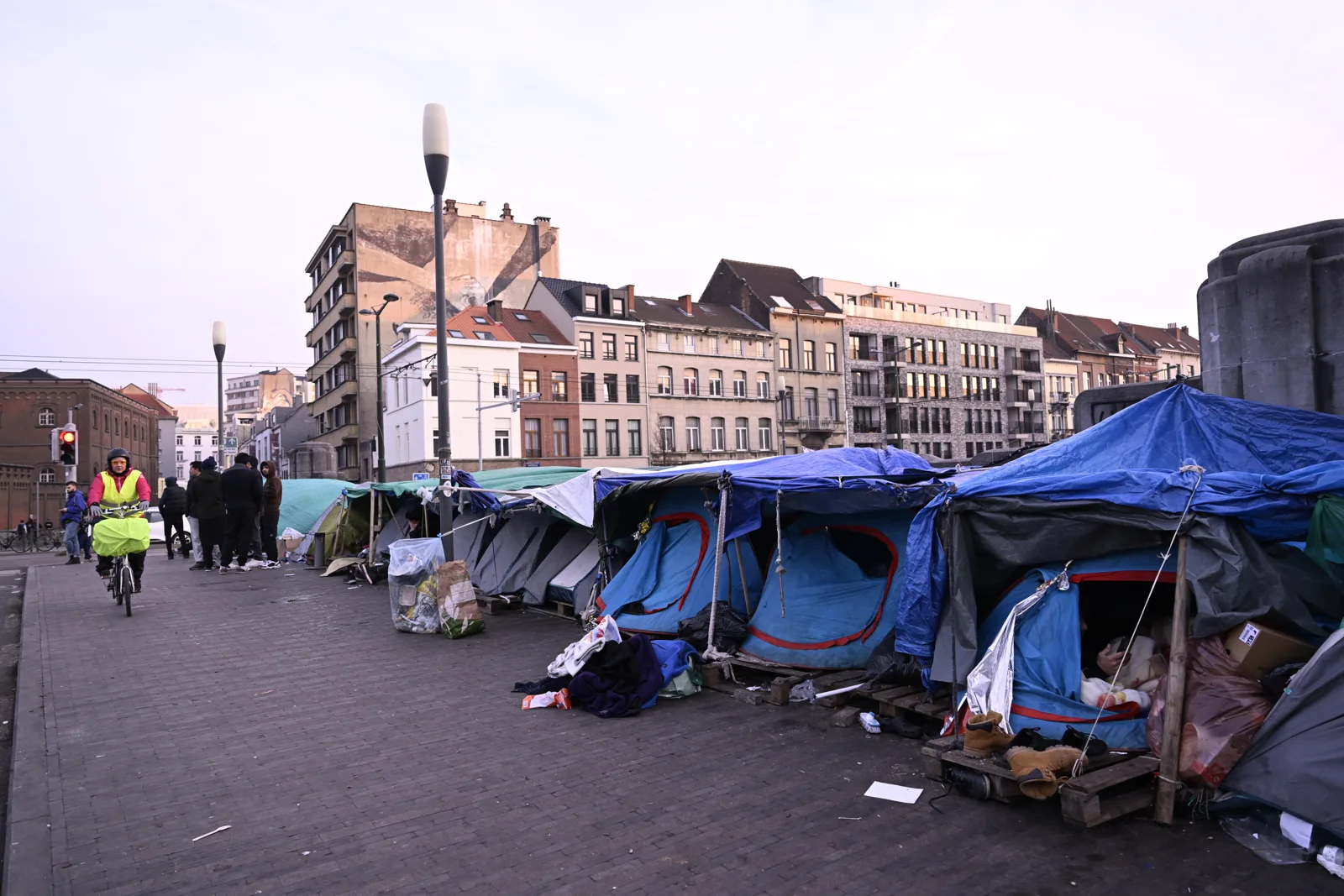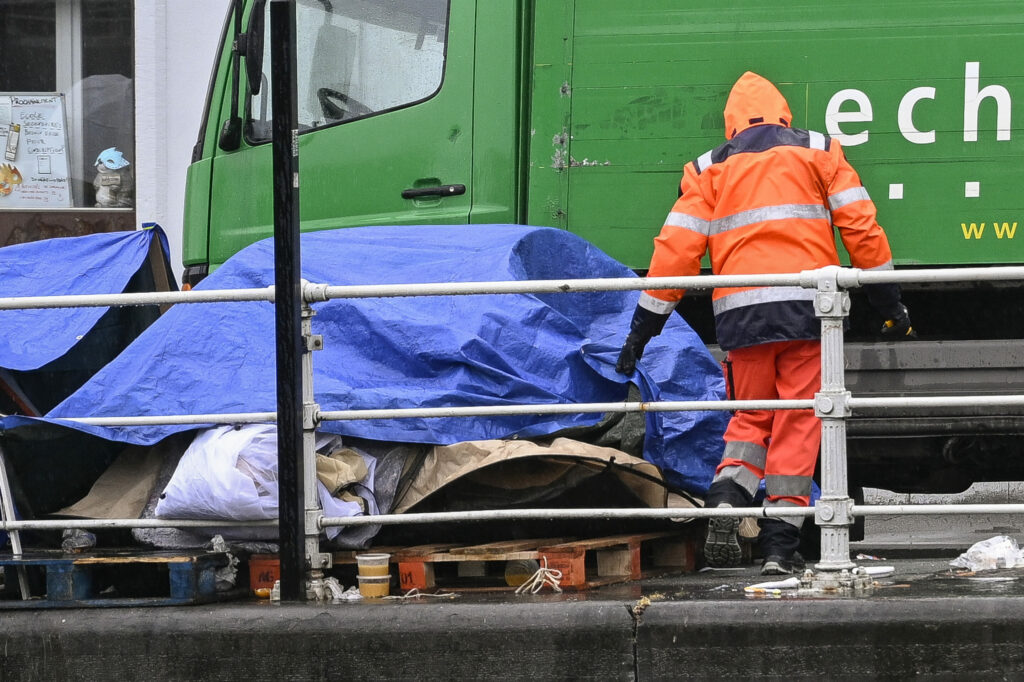Between 40 and 50 families seeking asylum are sleeping on the streets of Brussels every month.
For more than three years, the Belgian State continues to fail to provide necessary spaces in shelters for people seeking asylum, including families with children. The ongoing state inaction has fuelled an asylum reception crisis.
Thousands are denied shelter despite being entitled to it, which has led to the state's systematic denial of single men into the system. However, when reception centres are most stretched, women and families, too, have been turned away.
Two years ago this was a rare occurrence. Since the beginning of this year, a new reception point entitled Humanitarian Hub was set up by several NGOs. It has been receiving an average of 40 to 50 homeless migrant families a month who have no place to sleep, Belga News Agency reported.
"We witness discussions every day, where parents have to tell their children that they will sleep on the streets for another night," said Louis Fierens, a social worker at the Humanitarian Hub. Of the 521 families who applied to the centre since the beginning of this year, more than half found no place in the reception network.
The Humanitarian Hub organised a demonstration on Tuesday afternoon to get extra sleeping places in the Brussels emergency shelter.
Winter worries
Belgium's asylum agency Fedasil reported last week that the number of places available in its shelter network had reached another milestone.
"On 12 November, our reception network counted 36,077 places, exceeding the capacity of the 2015-2016 reception crisis," the agency noted. Compared to 1 January 2024, this represents a net increase of 400 places.
However, this capacity remains insufficient to provide shelter to everyone who is entitled to it. "Currently, there are still 2,650 single men on the waiting list for a reception place." Many people, including three-month old children, have to wait about five weeks on average to receive shelter, at a time when temperatures in Belgium are dropping.

Asylum seekers and refugees sleep on the street in Brussels. Credit: Belga
A policy officer at Refugee Work Flanders (Vluchtelingenwerk Vlaanderen), Thomas Willekens, pointed out that the reception waiting list is against the law. Courts have dismissed the State's attempt to point to ‘force majeure’ argument, stating it is doing everything it can but that the load is too heavy.
"Indeed, the government is not doing all it can," Willekens said. "It can open additional emergency shelters, as per Section 18 Reception Act. It can issue non-allocations instead of unlawful reception refusals, following Article 11, §4 Reception Act. As long as the government does not justify why it does not apply these options, there can be no force majeure."
Under Belgian law, families with children "have an unconditional right to reception, regardless of their administrative status", the organisations behind the Humanitarian Hub reminded authorities. "So the number of reception places must increase quickly and substantially."
Ignoring court rulings
Both the State and Fedasil have been condemned thousands of times by numerous courts both in Belgium and on the European level for failing to shelter asylum seekers. The Federal Institute for Human Rights (FIDH) this week launched an investigation into "the growing tendency of the Belgian authorities not to implement court rulings against them" and specifically pointed to the reception crisis.
"The Federal Government systematically refuses to provide asylum seekers with a reception place. Since January 2022, a total of almost 10,000 judgments have been handed down against the Belgian State and not implemented."
The investigation report will be sent to the federal parliament. Through this enquiry, the institute intends to examine the extent of the problem and its impact and to make any necessary recommendations.

